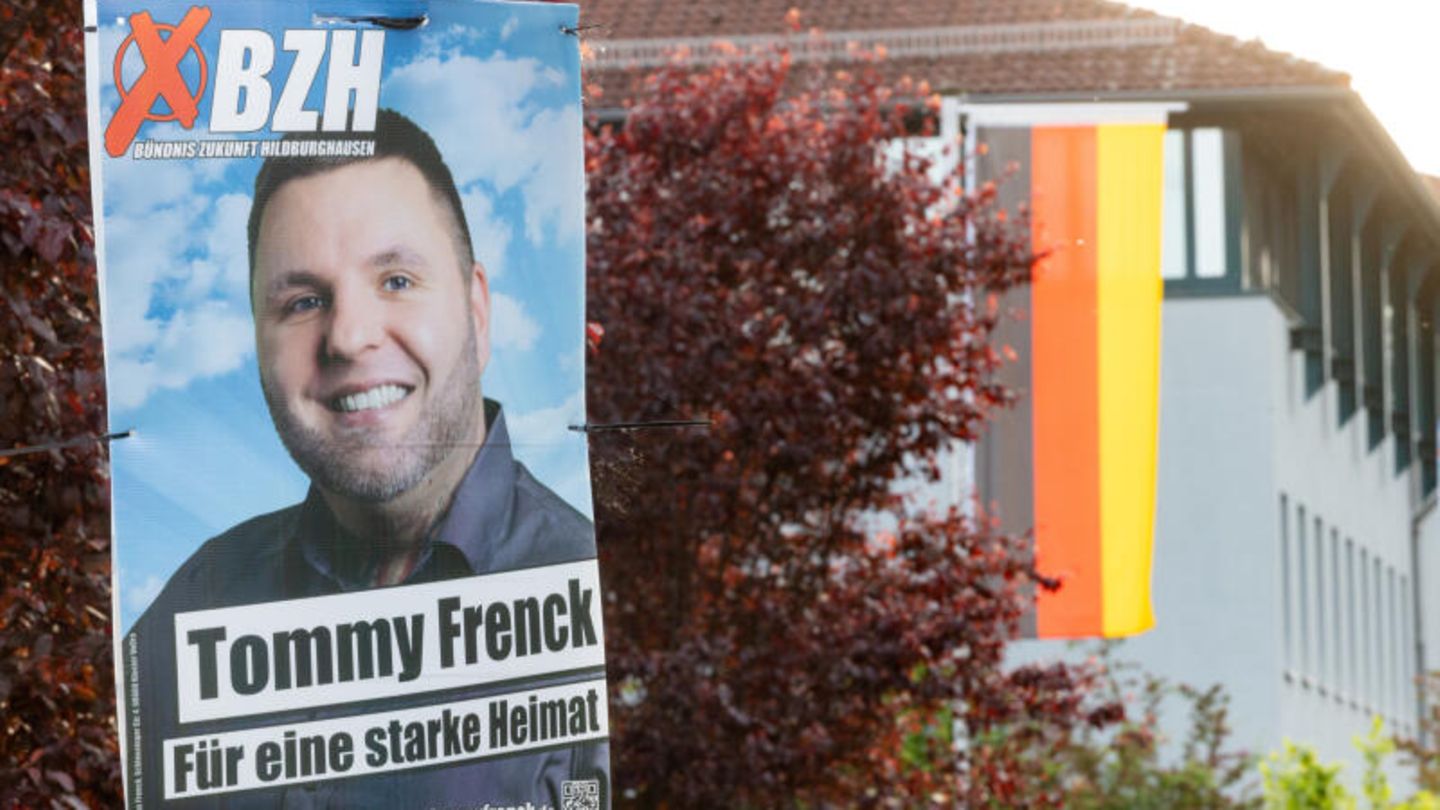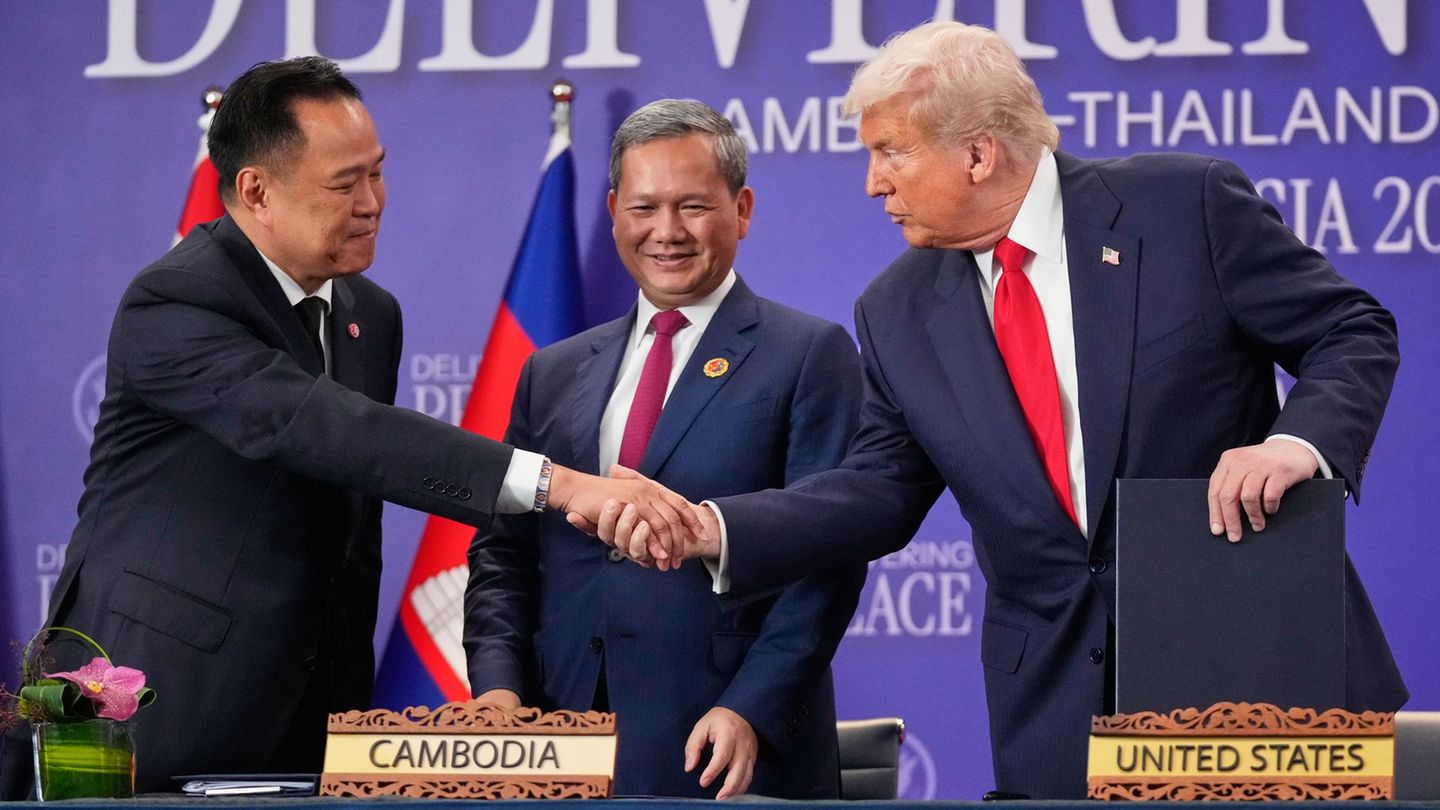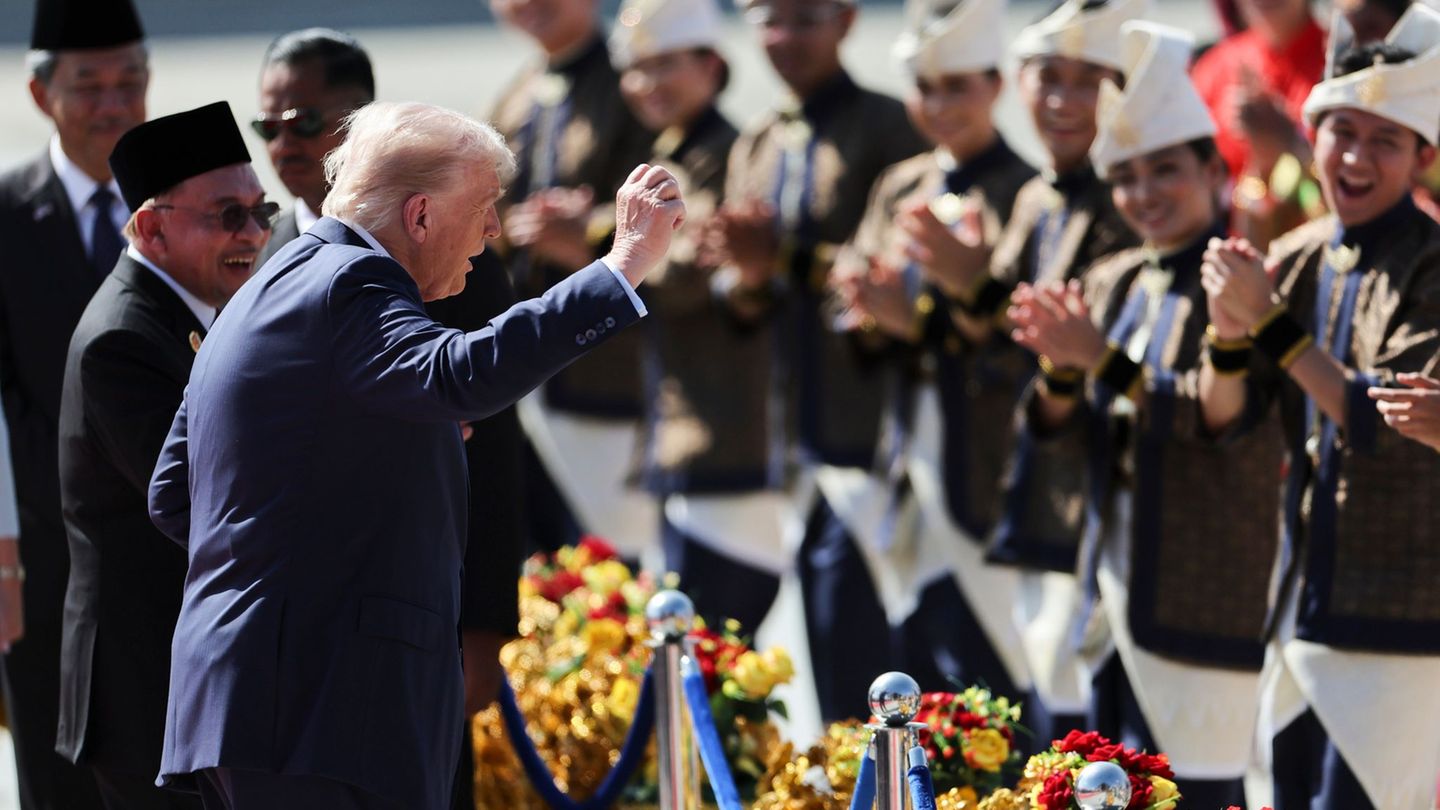Tommy Frenck from southern Thuringia received almost a quarter of all votes in the local elections in Hildburghausen. A neo-Nazi is moving into the runoff election for district administrator. How could this happen?
Tommy Frenck grins friendly from the election posters in the Hildburghausen district in southern Thuringia. A relatively young politician, short hair, blue shirt, meticulously trimmed three-day beard. “Tommy Frenck for a strong homeland” is written under his picture. Frenck is running for the “Alliance for the Future of Hildburghausen” (BZH), a citizens’ initiative like those in many other towns in local elections, or so it seems. But Frenck and the BZH are anything but bourgeois. The 37-year-old is one of the most influential and well-known neo-Nazis in Germany – and received almost 25 percent of the votes in the local elections in his district. Now he is in the runoff election for district administrator. How could a right-wing extremist even be allowed to run in a democratic election?
A neo-Nazi could become district administrator: Tommy Frenck won a quarter of the votes in his district
Frenck’s trivializing election posters were actually unnecessary. He almost seems likeable in his pictures, with their meaningless slogans. The people in this small circle know what kind of person he is. He has an “Aryan” tattoo on his neck, and in the past he organized right-wing rock festivals such as “Rock against Foreign Infiltration.” He also runs an online mail-order business where you can buy almost anything from weapons to T-shirts to beer and liquor, as long as it has a clear code of the right-wing extremist scene on it. The Office for the Protection of the Constitution is monitoring him, and he has been convicted of incitement to hatred.
Despite everything, Frenck’s name was now on the ballot paper for the district election – again. He ran as a candidate in 2018 and received 17 percent of the vote. This year he even improved his result to 24.9 percent. From the outside, this is absurd. According to the current Thuringian electoral law, extremists are not allowed to run in elections. According to this law, “anyone who does not guarantee that they will always support the free democratic basic order in the sense of the Basic Law and the state constitution” is not allowed to be elected.
Election committee voted three to two in favor of Frenck’s admission
But the final decision on who is allowed to stand in the election is made by the responsible election committee – a committee made up of five politicians. This year, the Federal Office for the Protection of the Constitution submitted its own dossier about Frenck and his BZH. The seven-page letter was “noted”, the members of the committee later said. Shortly afterwards it was clear: three members voted for Frenck’s admission, two against. According to “Focus”, the election officer and two CDU members voted for him. The neo-Nazi was allowed to stand. A decisive factor, the magazine continued, could have been that Frenck himself was present at the election and could have had an intimidating effect on those present.
As early as April, when the decision was made public, local citizens’ initiatives and parties were outraged. Jena-based administrative law expert Michael Brenner told MDR Thüringen at the time: “There is a lot to suggest that this candidate does not stand on the basis of the Basic Law and the free democratic basic order.” In view of Frenck’s CV, the “decision of the electoral committee to admit him could certainly be questioned.”
But it was not. The chairman of the electoral committee and district election officer Mario Geitt subsequently declared that the committee’s decision was “final”.
It is unlikely that Frenck will actually hold public office as district administrator for Hildburghausen. Even though he achieved a high result of 24.9 percent of the vote and thus moved on to the runoff election, the winner in the district was Sven Gregor from the Free Voters with 42.4 percent of the vote.
Sources:,
Source: Stern
I have been working in the news industry for over 6 years, first as a reporter and now as an editor. I have covered politics extensively, and my work has appeared in major newspapers and online news outlets around the world. In addition to my writing, I also contribute regularly to 24 Hours World.




